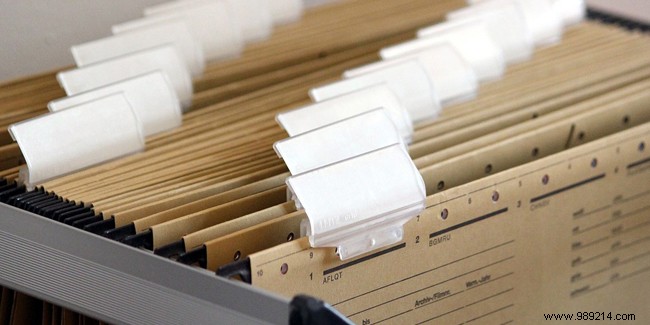
The start of a new year is often an opportunity to sort through your administrative papers. But the question arises of which ones you absolutely must keep and for how long. Most documents should be kept to a minimum for the time allowed for making a claim or being asked to account. Increasingly used documents in digital format have the same shelf life as those in paper format. A reminder of the rules concerning the archiving of administrative documents by major areas of everyday life
Most administrative papers related to civil status and family life are to be archived permanently. This is the case for birth certificates, family record books, marriage contracts, divorce or adoption judgments. Only notices of payment of family allowances can be destroyed after 5 years.
In terms of health, vaccination records, health cards, blood group cards, medical examinations, x-rays are to be kept indefinitely. Health and maternity insurance reimbursement notices must be kept for 2 years. On the other hand, there are no rules for everything concerning health insurance documents. Each organization defines its retention periods. A prescription is to be filed for at least 1 year before getting rid of it. Proof of payment of daily allowances must be kept until pension rights are settled.
For those who own their accommodation, the title deeds must be kept for life. All documents concerning the co-ownership (payment of charges, letters to or from the trustee, minutes of general meetings, etc.) must be archived for 10 years. Invoices for structural works are to be kept for 10 years and those for smaller works, 2 years, as are certificates of annual boiler maintenance. Sweeping certificates must be kept for 1 year.
For apartment rentals, the contracts, inventory and rent receipts must remain in your possession for the duration of the rental and 3 years after. Certificates of payment of personalized housing assistance (APL) must be kept for 2 years. The time limit for contesting an electricity, gas or water bill is 5 years, during which time these papers must therefore be stored. Landline, mobile and internet bills can be discarded after 1 year. On the other hand, paper proof of return of equipment such as a box or a decoder must remain in your possession for 2 years.
You must keep your contracts and work certificates, your pay slips, throughout your working life. These documents will be used when calculating the pension. The expense reports caused by his work must be kept for 3 years, during which time the tax services can exercise control. Receipts for the balance of any account must be kept for 6 months from the date of their signature. Notices of payment of unemployment benefits must be archived for 3 years, but it is better to keep them until retirement age.
The retirement pension payment slips must be kept without delay since they can be used to calculate the rights to a possible survivor's pension.
All bank statements and check stubs must be stored for 5 years. Loan contracts (real estate or consumer) made with a bank must be kept for 2 years from the date of the last due date.
Income tax returns and corresponding tax notices must be kept for 3 years from the year following the tax year. Local tax notices (property and housing tax) must be kept for 1 year as a general rule, and 3 years in the event of relief, exemption or abatement.
Insurance contracts must obviously be kept for their entire duration and 2 years after their end. Receipts, notices of expiry, letters of termination or proof of payment must be kept for 2 years from the date of the document. Everything concerning life insurance is to be archived for 10 years, as well as everything concerning bodily injury.
Invoices for the purchase and repairs of a vehicle must be kept for the entire duration of ownership of the automobile. In the event of resale, they must be kept for a minimum of 2 years thereafter, in case the buyer turns against you for a hidden defect. Minutes of fines must be kept for 3 years, during which time the Public Treasury may ask you to pay them, if you have not paid them.